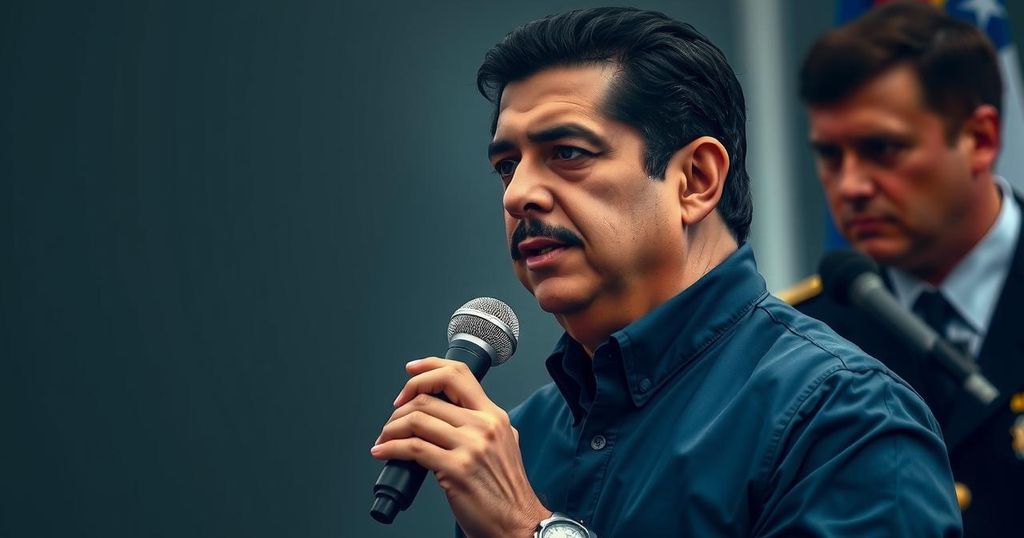The U.S. has sanctioned 21 allies of Venezuelan President Maduro for alleged repression following July’s disputed presidential election, while recognizing opposition leader Edmundo González. The sanctions target top officials within Maduro’s government and follow a previous round of sanctions. Maduro’s claim of electoral victory remains unverified, and discussions in Venezuela focus on countering such international actions.
The United States has enacted sanctions against an additional 21 associates of Venezuelan President Nicolás Maduro, citing their involvement in acts of repression following the controversial presidential election in July. The sanctions were announced by the Department of the Treasury and target high-ranking officials, including the head of the corrections agency, the intelligence service director, and the minister of Maduro’s Office of the President. This action builds upon previous sanctions levied against Maduro’s allies and coincided with the U.S. recognition of opposition candidate Edmundo González as the rightful president of Venezuela.
The sanctions were imposed in response to accusations that these individuals contributed to the repression of Venezuelans demanding fair elections. Following the July 28 election, which Maduro claims he won without providing transparent vote counts, González fled to Spain after facing an arrest warrant related to allegations of vote tally manipulation. Simultaneously, the U.S. government introduced new visa restrictions on individuals identified as repressors after the election.
Despite the sanctions, individuals previously sanctioned by the U.S. remain influential within Venezuela’s governmental structures. Additionally, the Venezuelan legislature is currently engaged in discussions to declare economic sanctions against the Maduro government as crimes against humanity, signaling ongoing tensions surrounding the legitimacy of the U.S. measures and their implications.
The political climate in Venezuela has been tumultuous, particularly surrounding the contested presidential election held in July. Nicolás Maduro, who declared victory, has faced strong accusations of electoral fraud and human rights violations from opposition figures and international observers. In this context, the U.S. has implemented sanctions as leverage against Maduro’s regime, aiming to undermine support for his government and support the opposition led by figures like Edmundo González. Previous sanctions had already targeted key officials within Maduro’s administration, and the ongoing legislative discussions in Venezuela reflect the government’s attempt to counteract international pressure.
In summary, the United States has sanctioned an additional 21 of President Maduro’s allies in light of alleged repression post-election. This step, part of a broader strategy to support the Venezuelan opposition and uphold democratic principles, highlights ongoing concerns regarding human rights and electoral integrity in Venezuela. As discussions continue within the Venezuelan legislature regarding the legitimacy of such sanctions, the political landscape remains fraught with tension and division.
Original Source: abcnews.go.com






